If you’re studying in Manitoba and planning to settle here —
it’s time for a reality check.
The Manitoba Provincial Nominee Program (MPNP) has taken a
major turn in 2025, and it’s not in favour of fresh international graduates.
The facts are clear — your chances are slimmer than ever.
The Numbers That Matter
The provincial quota for 2025 has been cut in half — from
9,500 to just 4,750 total nominations.
As per 2023’s draws, only 3,017 spots are available for the
Skilled Worker in Manitoba stream, which is the main route for international
graduates and workers.
What Does That Mean for Students?
Let’s break it down:
There are 15,290 total study
permit holders in Manitoba. 10,570 are post-secondary students, and 6,910 are
university students. That is over 10,000 eligible graduates — fighting for just
3,107 quotas.
To add to those numbers, there are 3,540 college students and
44,000 work permit holders in Manitoba.
Now you’re competing with more than 59,000 potential
candidates for a slice of just 3,170 nominations.
That’s a 5.2% chance; or worse.
Many students come to Manitoba with hopes of securing PR through a short 1-year
diploma. Here’s the hard truth:
Even if you have:
- A
master’s degree from back home
- A
diploma from Manitoba
- Full-time
experience
Your maximum MPNP score would be around 875, a level that
even a PhD graduate may not reach under the current system. But the problem is
that you will get only 1 year of PGWP with this diploma. In current scenario,
it is impossible to complete the process in 1 year.
This is a data-backed reality. If you’re a fresh graduate or
a current student in Manitoba, do not rely on outdated assumptions and do not
expect guaranteed pathways
Thousands of hopeful applicants are headed for
disappointment this year. Don’t be one of them. Book your free assessment today
with the best immigration lawyer in Winnipeg, and take control of your future
with clarity.






